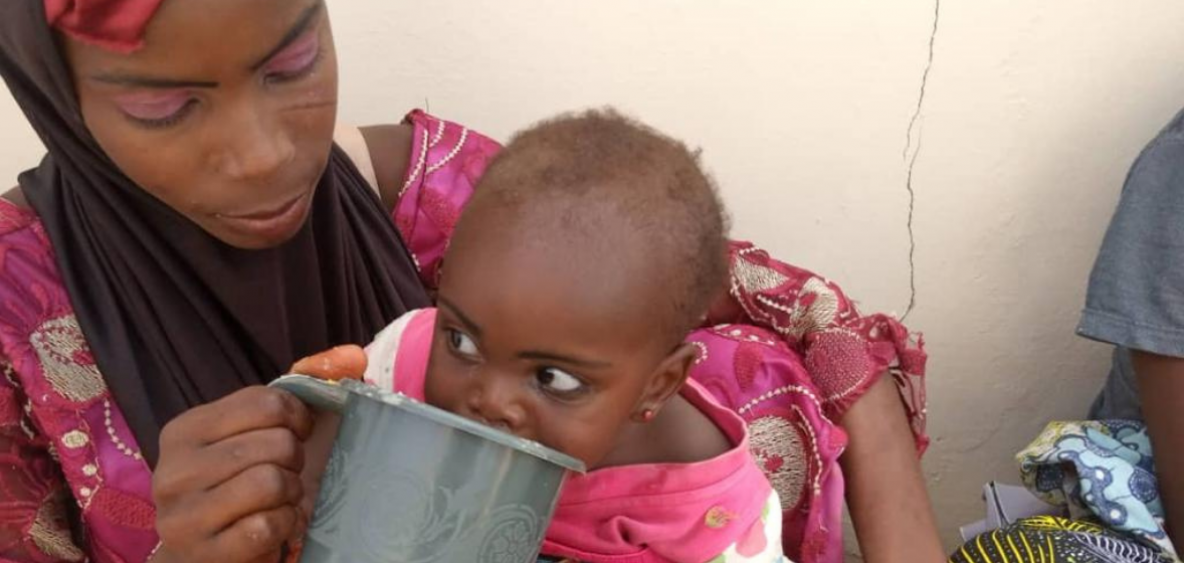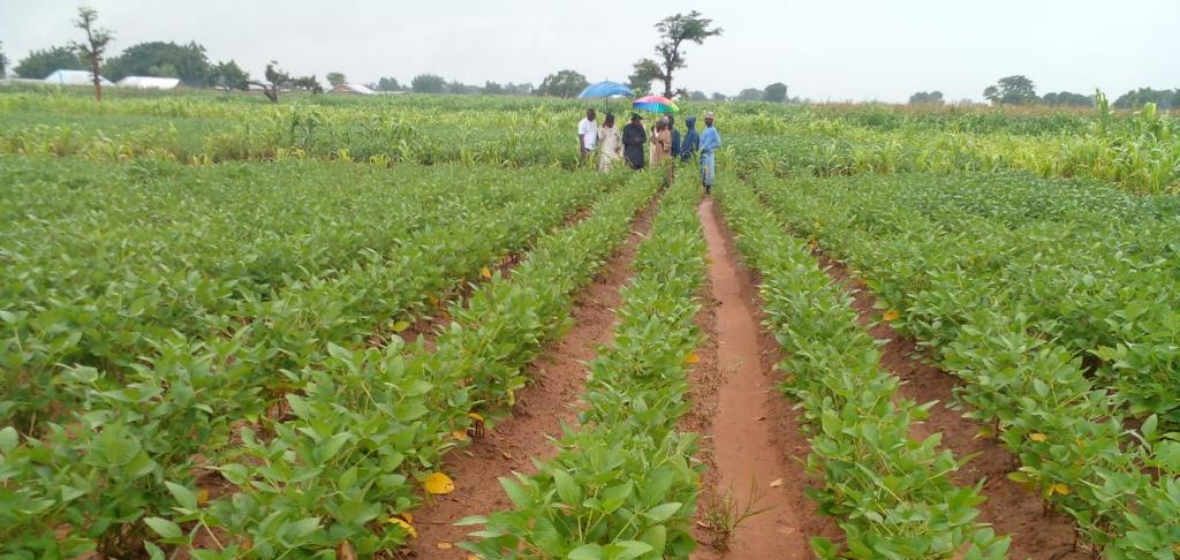 Credit: UNDP Nigeria
Credit: UNDP Nigeria The UNDP-led RFS Nigeria project is helping farmers make the most of the nutritional value of foods found right on their doorstep. A soya bean pudding is a particularly potent tool in the fight against malnutrition.
From farm to table, rural people have direct access to fresh, healthy food by sheer proximity. In theory.
In Nigeria, about half of the population lives in rural areas but an estimated 2 million children suffer from severe acute malnutrition. There are 15 million smallholder farmers in Nigeria, 80% of whom are subsistence farmers with under 2.5 hectares of land to work with. Smallholder farmers produce 90% of the food Nigerians eat, but their diets are neither varied nor nutrient-rich. So where is the disconnect?
The RFS Nigeria project is fostering sustainability and resilience for food systems in Northern Nigeria by addressing socio-economic and environmental drivers of food insecurity. Under these themes, ignoring the drivers of malnutrition in the country is simply not an option.
Environmental degradation challenges farm yields and drives food insecurity for rural families in Nigeria. Without sufficient household income, it is difficult for impoverished families to invest in varying their diets or exploring different methods of food preparation. For many communities in Adamawa state, crops like soya beans are grown for sale but are not eaten by the farmers themselves simply because they don’t know what to make with them.
The RFS Nigeria project, led by UNDP in collaboration with the Government of Nigeria, saw this knowledge gap as an opportunity to help farmers get more of a nutritional bang for their buck.
In 2019 the project supported the Women Farmers Advancement Network (WOFAN) in holding a training of extension agents to address malnutrition in communities. Hakia Salamatu Garba, Executive Director of WOFAN, explained that the trained practices would improve yields, produce healthier crops, increase earnings for farmers, and create job opportunities for women and youth across the country. In addition to nutrition training, participants were trained in soya bean and groundnut production, proper crop storage, how to tackle aflatoxins on farms, climate-smart agriculture, and irrigation techniques.
Stepping out from the classroom and into communities, the extension workers had their work cut out for them when tackling malnutrition on the ground, but their training served them and their beneficiaries well.
Interactions with farmers helped the project understand that the two main limiting factors to proper nourishment were a poverty-driven lack of access to protein and a lack of understanding of nutrition. The project set to work on introducing recipes that are cost-effective and easily accessible in the target communities. These included jallof rice, moi moi, soyabean pudding and pap.
In ten project communities in Nasarawa State, a total of 119
Male Youth, 266 Female Youth, 77 Men, 173 Women and 126 Children were present
at the food demonstration exercises in early 2021. Women and youth are the
primary targets for the RFS Nigeria project, and conveying the importance of
nutrition in children and pregnant and lactating women was a central theme.

Through discussing the concept of food groups and water
sanitization methods, participants are now better able to identify foods that
contain multiple food groups and a more rounded nutritional balance.
The extension agents trained through the program are equipped to move forward with communities and offer them the best support they can in the long term. Ndigamo Paul, a health worker in Kwano Wai, was trained in growth monitoring for children under five years old.
“They talked about what causes malnutrition in our community in order to avoid malnutrition cases among children from 0-59 months,” says Ndigamo Paul in an interview. “The parents are trying their best in order to help them and give these children the foods that we told them.”
When she first started working in her community, Ndigamo Paul said there were 29 cases of severe child malnutrition. Nine of these children were sent to hospital, and the other 20 were closely monitored by herself and her fellow agents. As of January 2022, six of the hospitalised children have been discharged and the remaining three have seen great improvement, mirroring the rate of nutritional improvement in their community at large.
“Through the series of training we’ve received under this programme, both men and women are empowered to know how to prepare balanced diet meals that build bodies. Our children used to be malnourished, now they don’t suffer from kwashiorkor or malnutrition-related diseases.” - Zileh Tanko, Farmer
Nutritional training and improved soya bean farming have improved farmers’ livelihoods in Nigeria in many ways. “One of the communities in Adamawa were not even aware of the existence of any crop like soya beans until the project introduced it to them, trained them on how to produce it, and about the nutritional value and the type of meals to prepare from it,” says Rhoda Dia, Project Lead for RFS Nigeria. “In Benue state, the project team trained the communities on how to use inoculation in soybean production which made the farmers double their yields.”
With benefits as tangible as these, the project is not going to stop here. The project will look at expanding extension agent training into other villages, conducting a post-training evaluation of nutrition levels in the target communities, promoting home gardens, and producing media resources that include recipes and tips to keep the conversation going in communities.
By reaping the full benefits of the fresh food at their doorsteps, farmers in Nigeria are tackling food insecurity plate first and ending the cycle of malnutrition.
Subscribe to our monthly newsletter to receive updates on stories directly from the field across all our projects, upcoming events, new resources, and more.